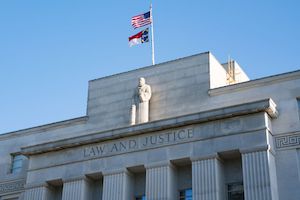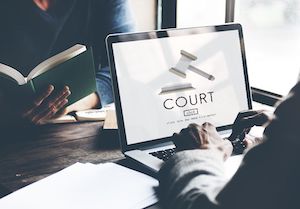Civil Judgments in Criminal Court
 In certain circumstances, a Defendant, who has either pleaded guilty or been found guilty after a trial, can be Ordered as part of the Judgment to pay certain fines, costs, and fees.
In certain circumstances, a Defendant, who has either pleaded guilty or been found guilty after a trial, can be Ordered as part of the Judgment to pay certain fines, costs, and fees.
Those fees may include attorney fees for representation on criminal charges.
While part of the Judgment and Commitment in a criminal case, attorneys fees, and Orders to reimburse the State for the appointment of counsel, is a civil judgment and therefore controlled by the Rules of Civil Procedure in North Carolina.
Appeals from Orders of a Superior Court Judge, even if part of a conviction by plea or trial, are completed by filing a Notice of Appeal in the jurisdiction.
Notice of Appeal is filed with the Clerk of Court and thereafter served on opposing counsel.
Ordinarily, in Civil Court, the Notice of Appeal requires filing within thirty (30) days.
In criminal cases, a Written Notice of Appeal may be filed, “At any time between the date of the rendition of the judgment or order and the fourteenth day after entry of the judgment or order.”
In the event timing issues arise, North Carolina Rule of Appellate Procedure 9(b)(5)(b) may allow Motions Pertaining to Additions to the Record.
Such motions are heard within the discretion of the appeal court (Court of Appeals).
NC Appellate courts may respond to a Writ of Certiorari to preserve the right to appeal.
Such Writs are deemed, “extraordinarily remedial writes” and may, in appropriate circumstances, work as a substitute to a formal appeal from the entry of an Order or Judgment.
Appellate courts may also grant reviews, by certiorari, ex mero moto.
Ex Mero Motu is a Latin term that roughly translates to, “Of his own accord.” It means the Court may review appellate issues without a formal request, prompting, and voluntarily.
 Contrary to what some might think, the appointment of counsel and/or a Public Defender is not automatic.
Contrary to what some might think, the appointment of counsel and/or a Public Defender is not automatic.
While some jurisdictions like Charlotte in Mecklenburg County regularly appoint legal counsel, the NC Criminal Laws set forth the processes and conditions precedent for a finding of Indigency.
As set forth in the AOC-CR-226 Affidavit of Indigency, “A court-appointed lawyer is not free.”
If the Defendant pleads guilty, no contest, or is found guilty after a trial (convicted), the Court may order the accused to repay the State of North Carolina for the attorney fees.
Prior to doing so, the Defendant facing either or both misdemeanor and felony charges in North Carolina has the right to be heard.
The Defendant in criminal court, prior to the issuance of a Civil Judgment for Attorney’s Fees, must be given both “notice” and the “opportunity” to challenge the amount of hours submitted, the costs of legal fees, and/or the imposition of fees.
The sentencing judge in North Carolina must ask of the Defendant (the person accused of criminal charges in NC), whether they “wish to be heard” on the issue of imposition of attorneys fees.
The Defendant must make a conscious decision not to be heard. That ordinarily would not be assumed by the Court.
As such, either the matter is recorded by the Court Reporter in Superior Court (District Court criminal charges generally are not recorded) or there must be “other evidence in the record” indicating the accused received notice they could be heard on the issue of attorney’s fees.
District Court, except for certain Juvenile Court, Domestic Violence Court, and other limited circumstances, is generally not considered a “Court of Record” in North Carolina.
As such, if the accused is not given the opportunity to be heard or respond to the issue of the imposition of a Civil Judgment for attorney fees, such an Order or Judgment should be set aside.
Criminal Defense Lawyers in Charlotte NCIf you have legal questions about a criminal charge in Mecklenburg County, our team of criminal lawyers at Powers Law Firm PA is available for consultation.
See also:
Helpful Information About Criminal Charges Powers Law Firm PA Home
Powers Law Firm PA Home














